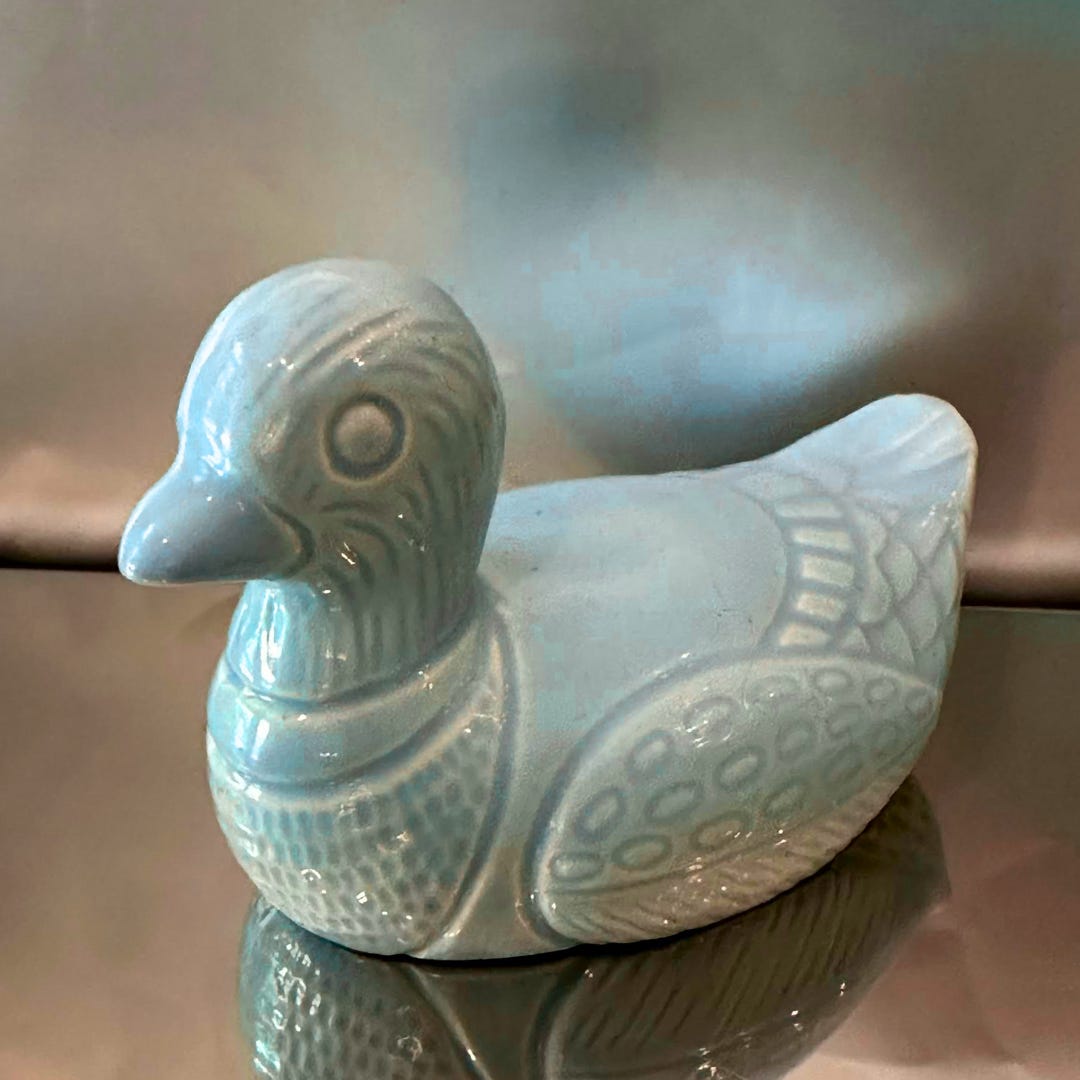THE QUACK-UP DUCK
“...my father pulled an unexpected object from the suitcase: a ceramic duck he’d painted in art therapy.”
I was 16 when my father came home from his three-month stay in the mental hospital. I kept him company as he unpacked his suitcase and carefully, robotically, put away his neatly folded undershirts and shorts. The father who’d returned wasn’t the ranting and raving, blazing-eyed, physically wasted, delusional man who’d left, but he wasn’t my pre–nervous breakdown father either. This facsimile had a blank countenance, a prescription for the anti-psychotic Thorazine and a thoroughly electroshocked brain he referred to as “scrambled.”
Gone were the glorious cadences of the voice that had held me enraptured as he read poetry or led services as the lay rabbi of our tiny Jewish congregation. I saw no trace of the more-is-never-enough ethos of fun that had led him to put on his Little Lord Fauntleroy costume and dance around our living room, a flamboyant spirit on full display on trips to Disneyland, Las Vegas and the movie palaces of downtown L.A.
We’d been twins, sharing not just the same dark hair, the same eyes, even the same allergies, but also the same overactive imaginations and intense moods. He’d coached me in flouting convention and standing up for social justice. When insomnia struck in the middle of the night, he’d invited me to ponder with him the big questions: Why are we here? Is there a god? Will we go anywhere after we die? Although being treated as a fellow adult sometimes overwhelmed me, I’d relished the role of confidante.
But his charms were also his weaknesses. When his mother died, the more-is-never-enough ethos led him to up his intake of painkillers and downers. His imagination tipped over the edge into madness. When he told me that my mother and uncle were conspiring to kill him, I could see it all just the way he described: the poison in his food, the lethal dose of painkillers, the pillow over his face as he slept. I spied on them for him, putting my ear to the wall as my mother cried on the phone to my uncle that she had no choice but to commit him against his will.
His going crazy and then disappearing from our home had felt like abandonment. I had identified too closely with him. I needed to separate. Allegiance to him had taken me to dark places. I had to protect myself in ways he hadn’t been able to protect me.
Now, with the clothes put away, my father pulled an unexpected object from the suitcase: a ceramic duck he’d painted in art therapy. “Look what I made,” he said, holding it out to me, a gift. A generic blue duck. He hadn’t given its eyes their own color or differentiated its feathers. My father had wanted a big life—as a writer, an actor, a crusader—but ended up selling insurance instead. The duck seemed proof of his final diminishment. It hurt me to look at it. “You keep it, Daddy,” I said.
Fifteen years later, still not fully sane, my father succumbed to a series of strokes. In his last months, we listened to Pavarotti together and cried. After his death, I reclaimed the duck, the sole thing I have that he created. It sits on my desk and I pick it up often, hoping to feel something of the father I lost, but I see him and our bond only in the paint color he chose: a cast of aqua blue that was his, and my, favorite. On the duck’s underside is his signature, but instead of our name—Lott—it says Lot, the last T missing, as if my father, never one to respect a boundary, simply ran out of room. —Deborah A. Lott

Deborah A. Lott is the author of the memoir Don’t Go Crazy Without Me; her creative nonfiction has been published widely. She teaches creative writing and literature at Antioch University, Los Angeles, and oversees its literary journal, Two Hawks Quarterly.
For a different reading experience, The Keepthings’ stories can also be read in their entirety on Instagram @TheKeepthings.
Have a story to share? Please see the complete submission guidelines, including photo guidelines, at TheKeepthings.com.





So many layers, so many complications and connections. So much love.
Deborah, thank you for sharing your father with us. I can feel your big love for him.